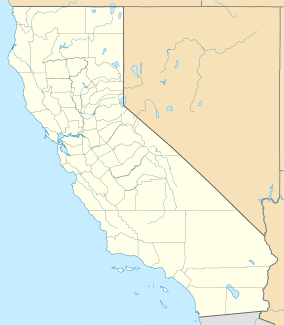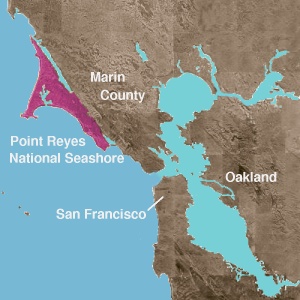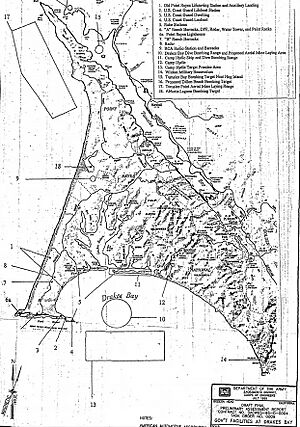Camp Hydle facts for kids
Quick facts for kids Camp Hydle, Point Reyes Gunnery Range and Drakes Bay Range |
|
|---|---|
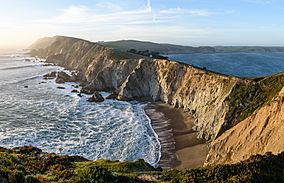
Headlands of the Point Reyes Peninsula from Chimney Rock, looking north.
|
|
| Location | Marin County, California, United States |
| Nearest city | Point Reyes Station, California |
Camp Hydle was a very important training place during World War II. It was also known as the Drakes Bay Range. This large camp was located at Drakes Bay on the coast of northern California, in the United States. Today, this area is part of the beautiful Point Reyes National Seashore.
The camp had many different training spots. These included Camp Hydle itself, the Drakes Bay Air to Ground Gunnery Range, and the Drakes Bay Dive Bombing Target. There was also Camp Murphy's Ranch, the Camp Hydle Maneuver Area, and the Camp Hydle Skip and Dive Bombing Range. Soldiers also learned how to use landing craft (boats that carry troops to shore). They practiced air sea rescue, which means saving pilots who crashed into the ocean.
Contents
What Was Camp Hydle?
Camp Hydle covered a huge area of 10,532 acres in Marin County, California. This land is on the West Coast of the United States. The entire area, from Stinson Beach in the south to Dillon Beach in the north, was called the Point Reyes Gunnery Range.
Training for War
The Gunnery Range had many important features. It included two radar towers, horse stables, and two lifeboat stations. The famous Point Reyes Lighthouse was also part of the range. There were lookout towers and targets on the land for planes to practice shooting.
Air and Sea Practice
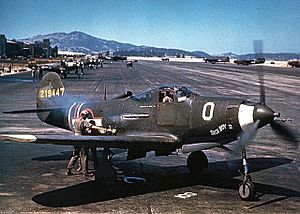
Planes used for dive bombing came from Hamilton Army Airfield (AAF), Santa Rosa Army Airfield (AAF), and Naval Air Station Alameda (NAS). These planes practiced not only at Drakes Bay but also at nearby Abbotts Lagoon and Tomales Bay.
Soldiers practiced landing craft training at Limantour Beach and Limantour Spit. Training with anti-aircraft guns was very important. These guns helped protect against enemy planes during the Pacific War. For gunner training, planes would pull targets across Drakes Bay, and gunners would shoot at them.
Protecting the Coast
Ships also trained at Camp Hydle. Some of these ships included the USS Walton and the USS Nevada (BB-36). The Navy took over the Point Reyes Lifeboat Station during the war. About 50 men at the station were air-sea rescue pilots. They would drop rafts to plane crews who landed in the ocean during training exercises.
The first troops arrived at Camp Hydle on December 7, 1941. The site was also used to defend the coast. Soldiers watched for enemy submarines and ships, protecting California from attacks.
From Camp to Park
Most of the land for Camp Hydle was rented from Leland Murphy (Murphy Ranch). After World War II ended, the military no longer needed the camp. In 1962, the site became part of the beautiful Point Reyes National Seashore.
See also
 | Dorothy Vaughan |
 | Charles Henry Turner |
 | Hildrus Poindexter |
 | Henry Cecil McBay |


